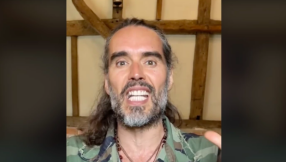
Suicide is a means of escape for problems that create significant pain, distress, loneliness and grief. For some, their intent is merely to rid the emotional pain that haunts their consciousness. Unfortunately potentially permanent means are sought for temporary situations.
These matters may be past childhood physical, sexual or emotional abuse, the loss of loved one, rejection, unrecognised and under-treated mental illness, multiple unpredictable life occurrences, etc. The pain that all humans face at one point or another can't be minimised because the desire to die is becoming more of a reality every day.
The rate of suicide is surging in all communities but the shock is more strongly perceived with a clergy person or anyone who holds a position in the Church. My guess is that all clergy must be viewed as supernatural humans - and they are not.
Church Overseers have to start placing stronger emphasis on the use of counselling or behavioural health treatment for anyone who is depressed, grievous or has experienced some form of trauma in their lives.
We know within the Church world that the most desired outcome is unwavering faith in God and for the most clergy can align with this. However, for those who are not emotionally strong enough then there must be a place for them to turn so that despair will not become too overwhelming.
Being depressed and thinking that you have absolutely no one to turn to is a deadly combination. There are many examples in the Bible of depression, bereavement, schizophrenia, borderline and antisocial personality, bipolar and ones who contemplated suicide, did commit suicide or just ones that question the reason for their existence and the list goes on.
This is not a new concept, but it is being publicised more. And other than broadcasting what happened or questioning why it happened, I think the question becomes more of what can be done to help.
In addition to Pastor Teddy Parker, Pastor Ed Montgomery has now committed suicide and there may be others. Any one death by suicide in the Body of Christ at large is one too many and we are obligated to identify resources within the Church and outside of the Church amongst therapists, psychiatrists and the like, who understand the magnitude of what spiritual dilemmas create.
Additionally, rather than causing clergy to believe that they need to step down from their position there must be spiritually sensitive approaches developed to reinforce wellness. In all honesty this approach is not different for the Church, but it is more of the second alternative because, once again the ultimate desire is that all people come to believe and depend on God.
In regards to clergy and people in general who have suffered a traumatic experience like suicide there needs to be a public service announcement that all pastors start delivering.
My own pastor, Pastor Jeffery Lewis of the New Antioch COGIC, has been very quick to start encouraging members to seek additional help.
This at least gives clergy the permission to come to terms with what they are facing. There are typically signs to suggest that a person may be contemplating suicide and everyone within the Church must be educated to recognise the signs of suicide and to refer people to local behavioural health agencies to get help.
However, one of the important messages that I would like to get out is that when someone wants to die, they will, and the point of recognising the signs is to figure out how to give that person a slither of hope that what they are experiencing can get better.
LaQuita Suggs is a grief recovery specialist in Lakewood, California and a licensed evangelist at the New Antioch Church of God in Christ in Los Angeles, California.













